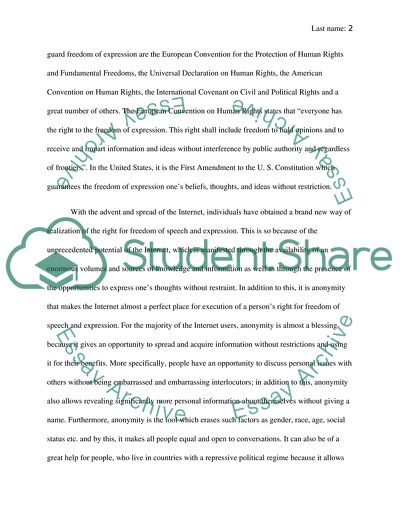Cite this document
(Freedom of Expression and Anonymity on the Internet Essay, n.d.)
Freedom of Expression and Anonymity on the Internet Essay. https://studentshare.org/sociology/1852022-online-community
Freedom of Expression and Anonymity on the Internet Essay. https://studentshare.org/sociology/1852022-online-community
(Freedom of Expression and Anonymity on the Internet Essay)
Freedom of Expression and Anonymity on the Internet Essay. https://studentshare.org/sociology/1852022-online-community.
Freedom of Expression and Anonymity on the Internet Essay. https://studentshare.org/sociology/1852022-online-community.
“Freedom of Expression and Anonymity on the Internet Essay”. https://studentshare.org/sociology/1852022-online-community.


